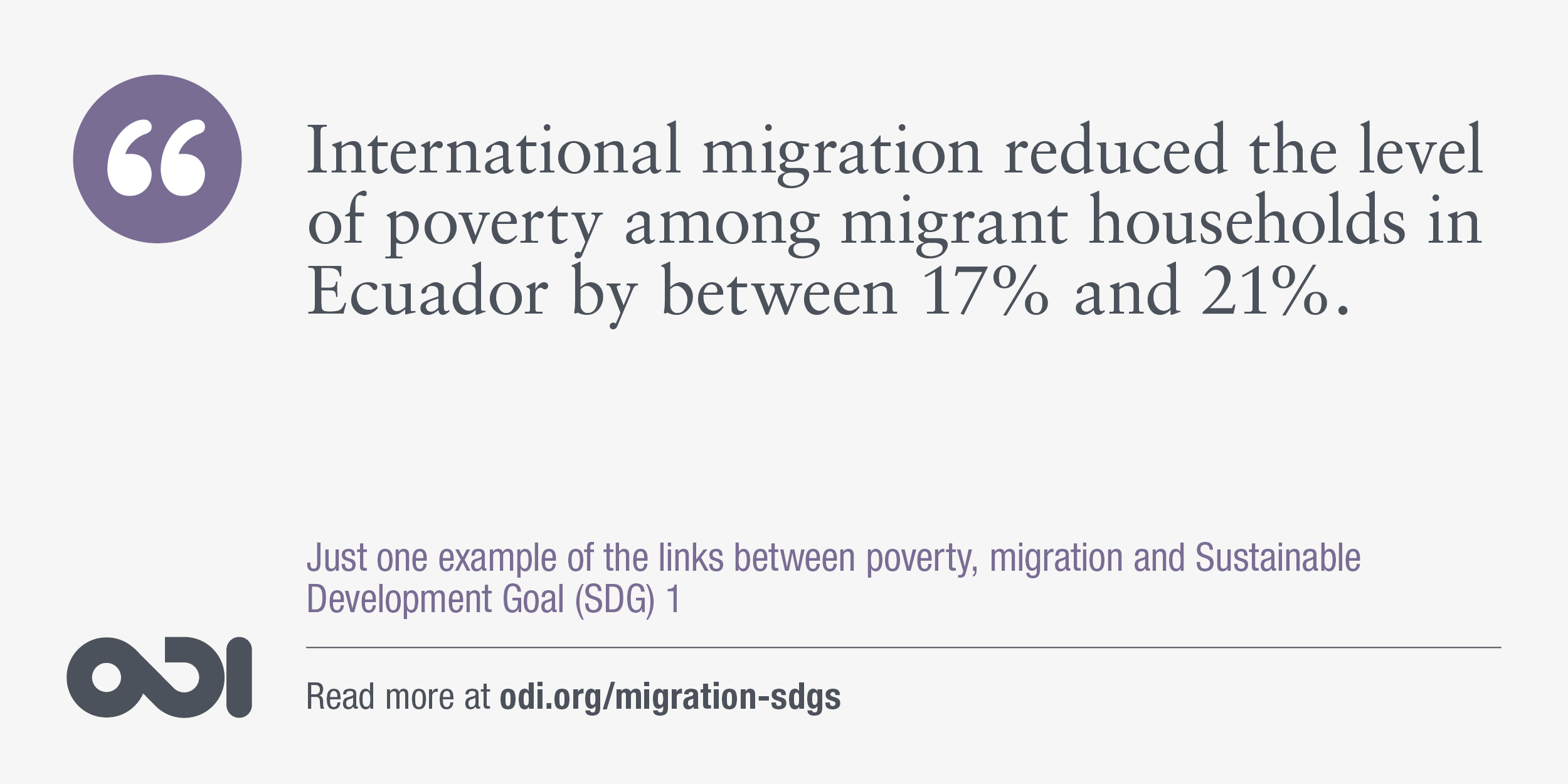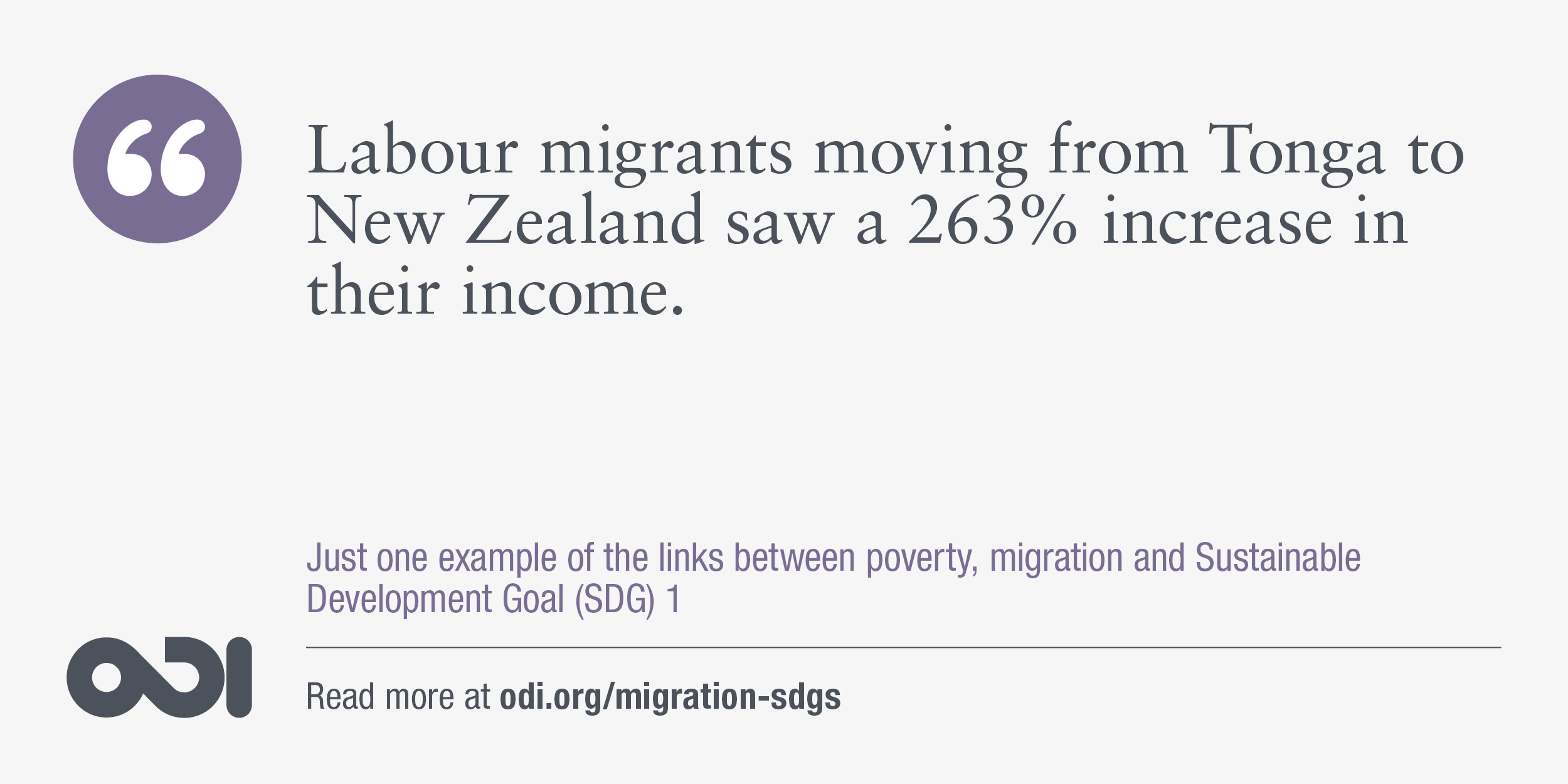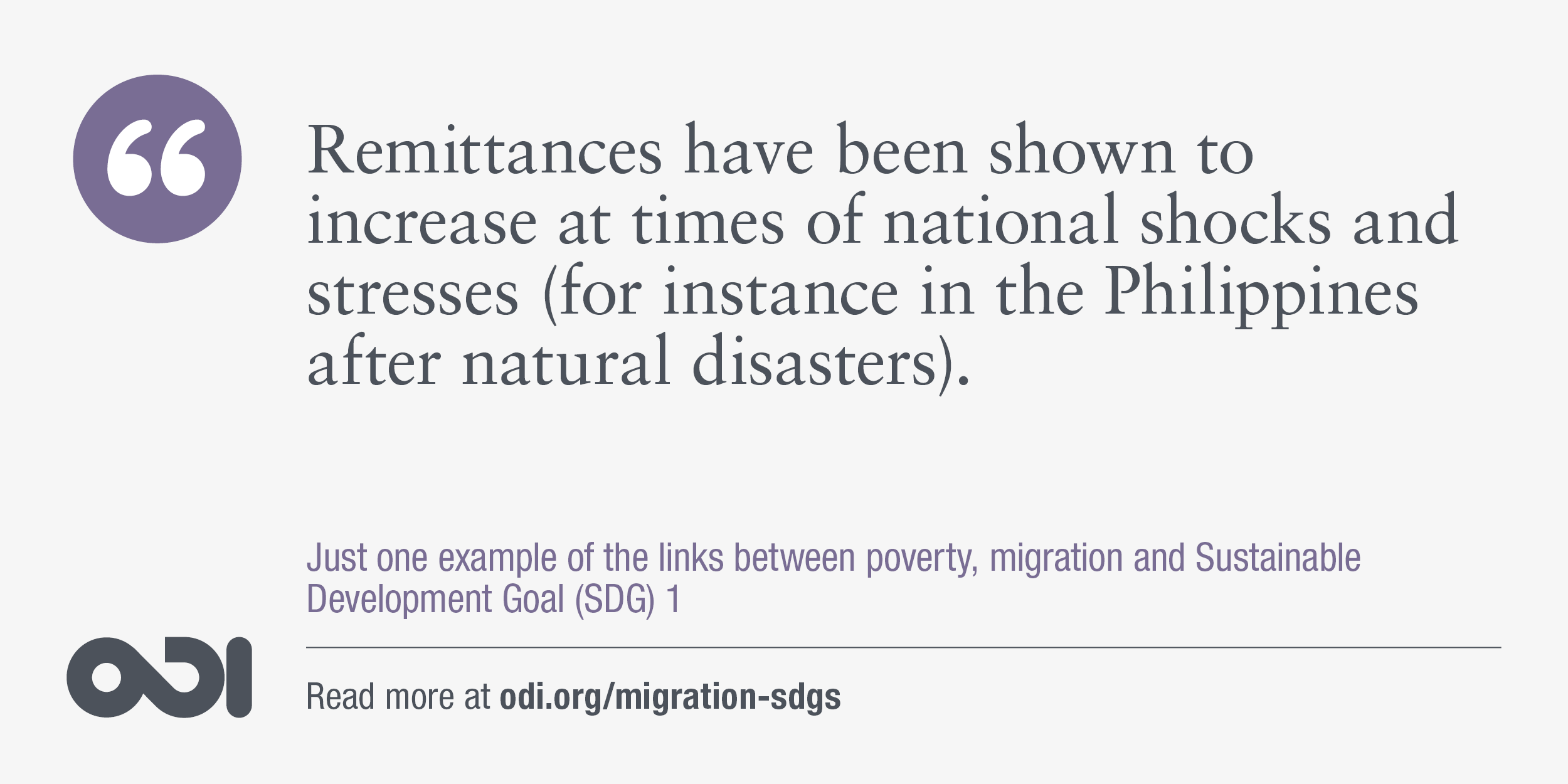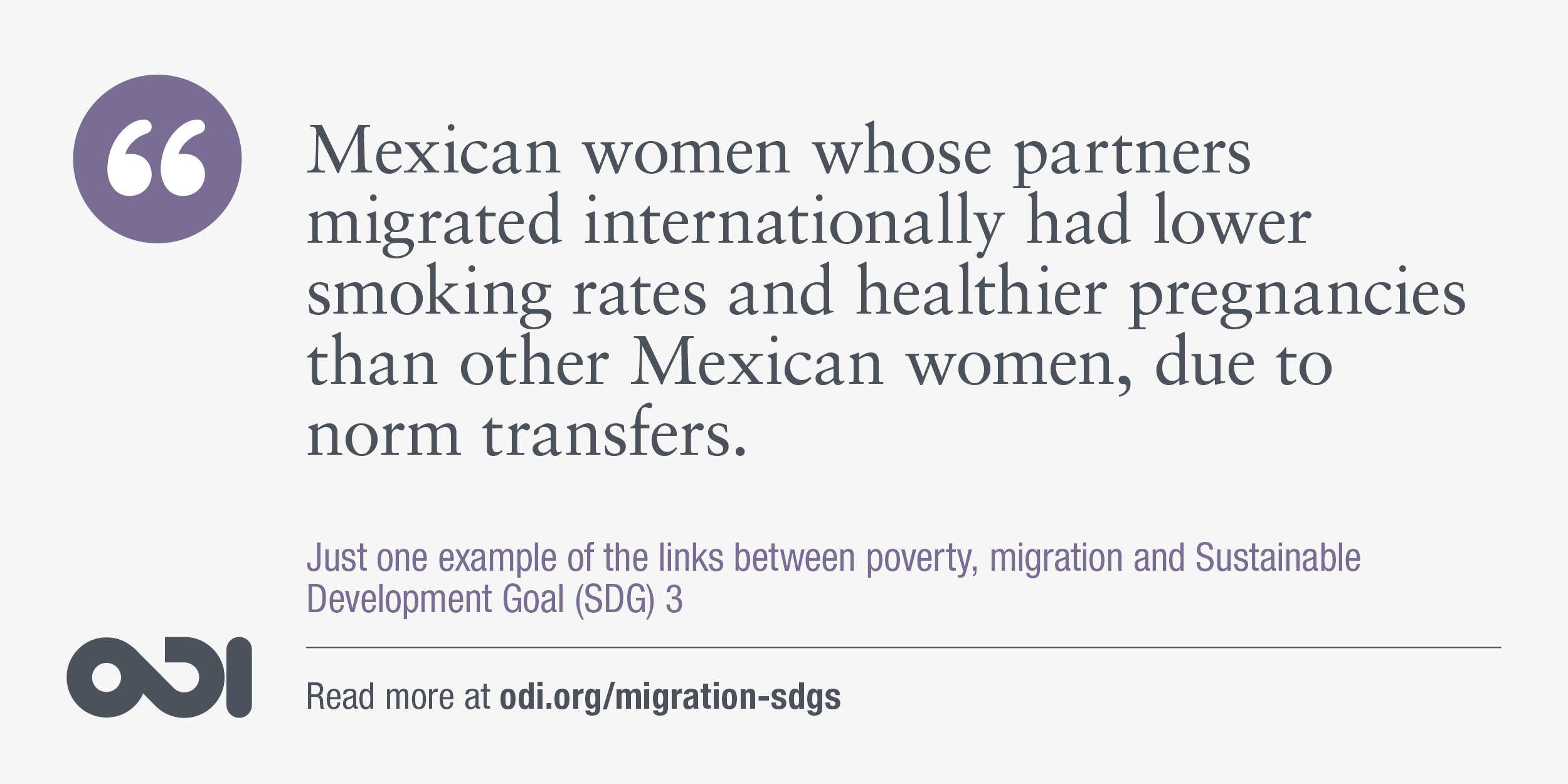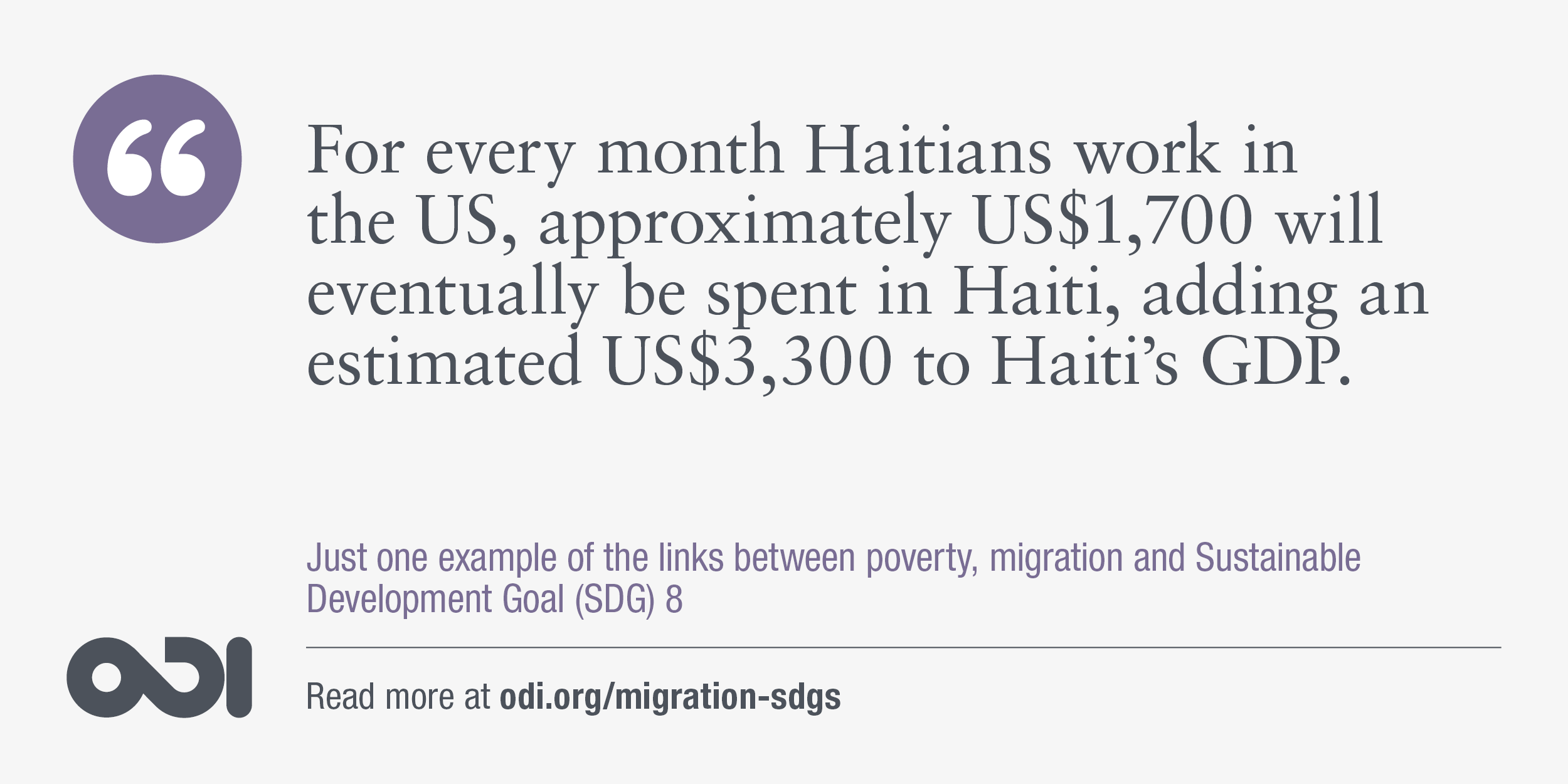This briefing considers the extent to which international labour migration can reduce poverty, and the implications this has for the 2030 Agenda for Sustainable Development (2030 Agenda). Sustainable Development Goal (SDG) 1 calls for ‘ending poverty in all its forms everywhere’. Labour migration can help achieve this goal, having been described as ‘the most effective contribution we can make to improving the lives of the world’s working poor’ (Rodrik, 2007). In this briefing, we show that international labour migration is a powerful tool to reduce poverty, for migrants themselves, their families, and their host and origin countries.
Key messages
- International labour migration can reduce poverty for migrants themselves, their families, and their host and origin countries. It is therefore crucial to achieving SDG 1.
- Yet, migration does not always achieve its poverty reduction potential. This is due to the high costs involved, poor conditions in host countries, and barriers to mobility.
- To reap the benefits, states should increase and diversify safe, regular and orderly migration pathways in line with demand for migrant labour, and make these easier to access.
- Remittances are a powerful poverty reduction instrument. They should be encouraged by origin countries and the private sector. Transfer costs should be lowered. States should also lower the costs and bureaucratic requirements for those wishing to migrate.
- Evidence is needed on the mechanisms through which migration impacts on poverty. Better longitudinal data would help understand these pathways and target policies effectively.
This is the seventh in a series of policy briefings on the relationship between migration and 2030 Agenda for Sustainable Development.
